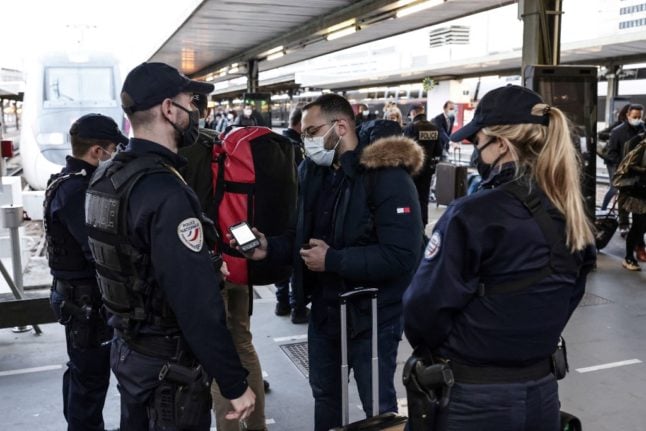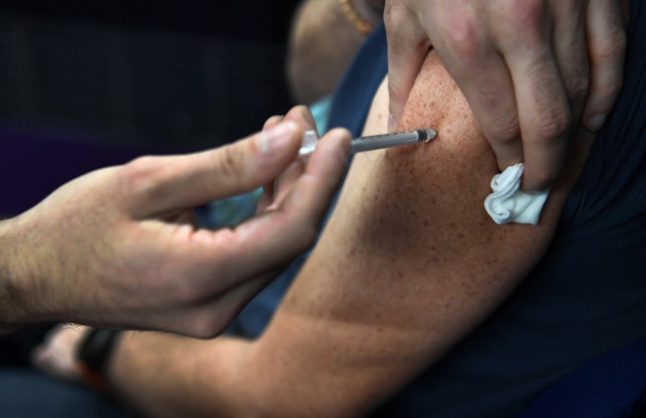On Saturday ‘lockdown light’ measures were extended to cover the whole of France, including a ban on travel between regions.
French President Emmanuel Macron had ordered police to show leniency over the weekend, saying during his live speech last week: “Those who want to change regions for the lockdown period can do so over the Easter weekend.”
Currently set to end in four weeks, the French government might extend the measures if the health situation so requires.
But with the Easter weekend now over, police checks will multiply this week, authorities confirmed to French media on Tuesday.
READ ALSO EXPLAINED The full rules for France’s ‘partial lockdown’
Over the weekend, police made over 100,000 stops and handed out 10,500 fines, according Interior Minister Gérald Darmanin.
“Essentially,” Darmanin told Europe 1 on Tuesday morning, the fines “were for breeches of the curfew after 7pm and gatherings of more than six people in public.”
From Tuesday, police will increase the number checkpoints on highways, roads and train stations to ensure compliance with the travel ban, which was already in place in 19 départements and on April 3rd was extended to the whole country.
Anyone travelling further than 10 km in France now needs an attestation (permission form) stating the purpose for their journey.
READ ALSO When can I travel more than 10km from home?
The form can be found HERE or on the TousAntiCovid app.
Train stations
Those travelling by train in the coming days and weeks may be met by officers asking them to present an attestation with a valid reason for their trip upon the arrival.
“When a train arrives, we position ourselves at the end of the platform, which allows everyone to be checked,” the official told French daily Le Figaro.
Roads
As with train passengers, drivers now need a signed attestation to make a journey and risk a €135 fine if they breech the travel rules.
People in France became used to these kind of checkpoints during the two preceding lockdowns.
“If the check takes too long, we are quickly flagged, allowing drivers to find another way around us,” the official told Figaro, explaining that people now use apps to report when they see speed cameras or police.
Whether or not police check all cars that pass will depend on the traffic level in the area. If there are a lot of cars, checking all of them will create traffic jams, which they wish to avoid, the officer said.
Airports
Airport checks have been in place for a long time, after France toughened up rules on January 1st by closing its non-EU borders.
Reader question: Can I travel to France if I’ve had both doses of the Covid vaccine?
While restrictions for travellers from seven non-EU countries (including the UK, Australia and New Zealand) were relaxed in March, this does not cover travellers from the United States.
Full rules on travel in and out of France HERE.
Other rules
Police also will increase checks to ensure that people comply with the health rules in place, such as the nighttime curfew (7pm to 6am), a ban on alcohol consumption in public, and a six-person limit on gatherings outside.
Fines
Breaking the lockdown or curfew rules means risking a €135 fine, which can rise to €3,750 and six months in prison for repeat offenders.
For full details regarding the ‘lockdown light’ rules, click HERE.



 Please whitelist us to continue reading.
Please whitelist us to continue reading.
Member comments